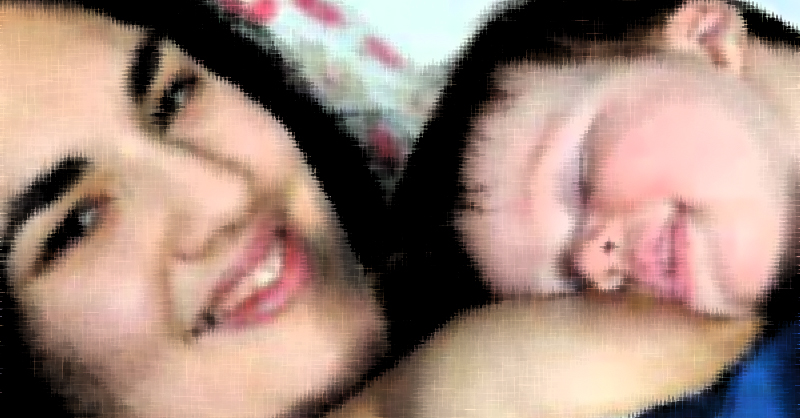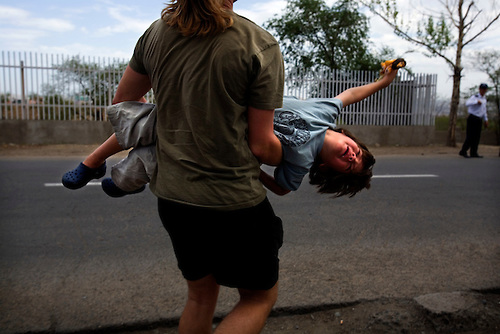
by Roma | May 2, 2018 | anxiety, OCD, parenting, Self harm, trauma
“You’re KILLING me, I can’t BREATHE, I’m HOT, let me go! You’re hurting me. What kind of MOTHER hurts her own SON.” I look down and check. My hands are so loosely around his 7 year old wrists. Admittedly, I was holding him pretty tight a few minutes ago but now it feels like he just needs an impression of being contained to thrash against. “I’m right here Angel, I’m not trying to hurt you, I’m going to let you go as soon as you can stop hitting and breaking. I see you breathing. Yes, you’re getting hot.” This routine on repeat was how we lived our lives for several months when my son was suicidal, wetting himself, had many explosive, aggressive meltdowns a day, was so anxious he couldn’t fall asleep and woke several times in the night. He would roll out of bed screaming some mornings, he’d hurt or throw his sister around if we got there too late or try to bite/slap/wet himself or headbutt the floor when he got distressed. Some of us have these intense kids. So beyond just keeping everyone safe, what measures can we apply to actually remedy this level of distress in the family? I’ve wanted to write something on helping children with anxiety/aggression/OCD/self-harming type behaviours using these therapeutic, trauma informed parenting tools from Hand in Hand and based on my experience as a mother, because I know they are many others out there enduring this level of stress in family life. And none of us tend to talk about it too much. Some of our kids show...
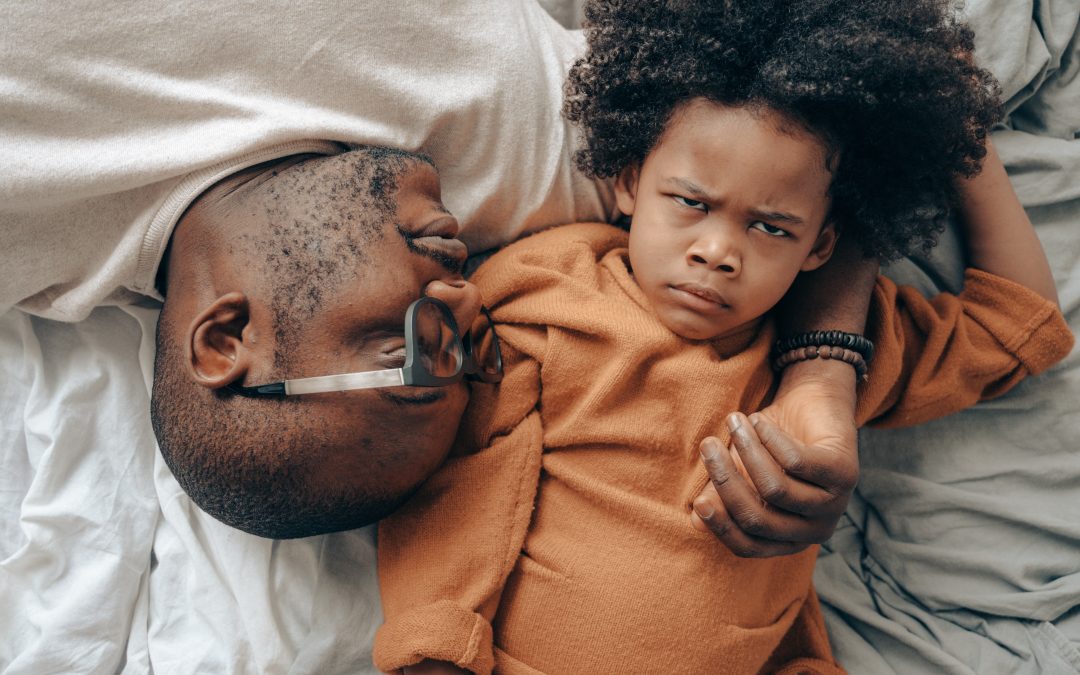
by Roma | Apr 3, 2018 | Birth, breastfeeding, parenting, feminism, suffragettes
FEAR_Issue_52 There is an insidious undercurrent that can seep, unbeknownst to us, into our children’s hearts, affecting their behaviour and their confidence. It can alter their thinking, posture and shake their enjoyment of life and bigness in the world. When the baby is constantly crying and squirming, refusing to nap more than 40 minutes a day. When our toddler won’t let us out of sight, or when children are picky with their food. When siblings become aggressive, a child is clingy or passive, or needs a lengthy bedtime routine to be able to fall asleep, we assume these are typical kid things. But what do these seemingly unrelated behaviours have in common? Fear. Fear can accumulate in good children, who have good parents. It weighs on them and causes their world and the opportunities available to them to become restricted. It prevents them from feeling relaxed enough to eat or sleep effortlessly. Fear makes a short separation from mummy feel life threatening. It signals such desperate alarm in challenging situations that they are prone to strike out or bite or lose bladder control. It drives them to answer back or appear defiant as a defence. Fear creates anxiety, restlessness and rigid or compulsive behaviours. Fear causes some children to quietly retreat from things they love. The good news is we can help our children recover from fear! It is guaranteed for children to experience frightening situations, no matter how well we love and care for them. It’s certainly no-one’s fault. We don’t always know when fear set in. It may have been during a...

by Roma | Feb 27, 2018 | Birth, breastfeeding, parenting, feminism, suffragettes
If you are based in Frome you are already part of one of the most cutting edge towns in the UK. Last week George Monbiot reported on revolutionary community measures against isolation that are cutting the rates of hospital admissions in this progressive town. Frome is known for its community. You may be enjoying the benefits of this already. Or – and especially if you have young children – you may be feeling more isolated than ever. Why is community so important? And what role does it REALLY play in raising healthy kids? As humans, we are such social creatures that our brains don’t actually exist as individuals. Unbeknownst to our conscious awareness, our brains are constantly searching out ways syncing, moulding, adapting, and mirroring our brains with those around us. We do this spontaneously, unconsciously and completely naturally – it’s part of our in-build survival mechanisms. It’s an attempt to form and participate in a ‘hive mind’ – something greater than each of us. We are group animals; built to survive, thrive – and raise children – in a tribe. So a good portion of our energy and nervous system activity is allocated to constantly assessing how well we belong, how socially acceptable we are. And yet: if you are a parent you might be experiencing one of the most isolated phases of your life. So many of us are living geographically far (or estranged) from our parents. If a couple is going to break up, the most likely time is within the first year of our child’s life. And even if we do stay together, with the pressures of nuclear...
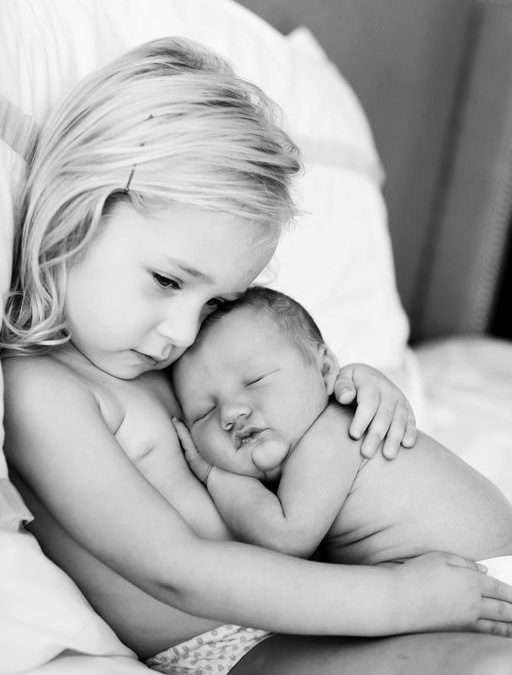
by Roma | Oct 9, 2017 | parenting
“Help! My daughter is 2.5 years old and does not listen at all, she now has a little brother which she is jealous of. Sometimes her behaviour is out of control. What can I do?” Ah bless you, this sounds very normal to me and so challenging for you when you are trying to meet the needs of a new baby. It’s very common for children to become a bit ‘wild’ when a new sibling comes along. Some children will be aggressive towards the baby; ‘accidentally’ squeezing too hard or being passive aggressive. Some children will be loving towards the baby but become difficult in another area. Your sweet girl isn’t trying to make life hard and when she doesn’t listen it’s because her brain chemistry means she literally CAN’T hear you. You’ve probably noticed how children are sometimes naturally co-operative, kind and flexible. This happens when they feel connected to us, they feel our attention and warmth in a way that feels like we ‘get’ them. Often our attention gets unavoidably interrupted, causing small breaks in connection and our child’s upset feelings about that accumulate. And sometimes things happen in the family to create a bigger break in connection. Maybe one parent goes away on a trip, or you move house or get ill. Having a new sibling is a bigger break in connection. The unconscious, emotional part of the brain registers it as a threat. It questions if there will be enough love and attention to go around. With bigger breaks in connection, sometimes your child can’t feel your warmth and attention even when you are...
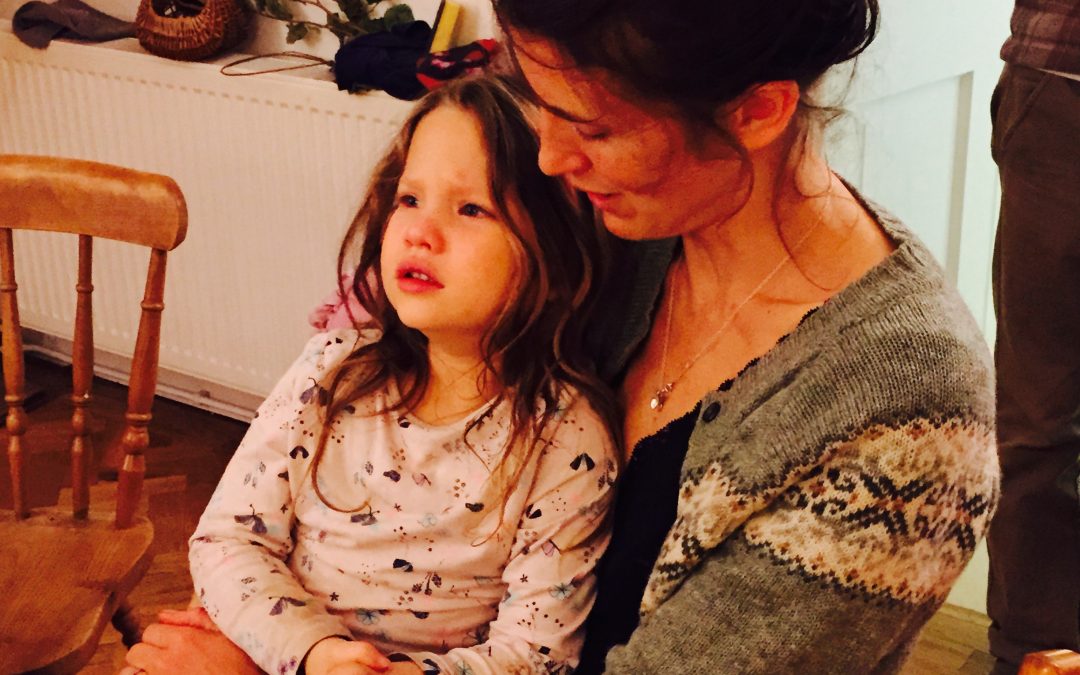
by Roma | Sep 25, 2017 | Birth, breastfeeding, parenting, feminism, suffragettes
What if every time your child cries or tantrums, they are actually doing something highly worthwhile? We don’t always appreciate it when our children begin to cry, but what they are actually doing is making use of the body’s innate recovery system. When we get hurt, physically or emotionally, instead of storing it all up in our bodies as tension, we can make use of crying, laughter, raging or trembling. This is how the body processes and releases feelings. Most of us don’t do this often, having being told “Don’t cry” since we were small, but our children still have their recovery system intact. The best news is that all of our children’s difficult or ‘off track’ behaviour is driven by emotion and when they get to use your good, warm attention to dump out these feelings, you get your angel back. By actively encouraging our children to cry when they need to, they not only get to shed hurt feelings, they end up feeling more connected to us as well. The way we listen can either shut feelings down, or help children to feel what they are feeling more fully. Here are things you can say to listen well. General reassuring phrases: 1. I’m right here 2. I see how upset you are 3. I’m sorry this is hard, Love 4. I’ll be with you while you are upset 5. I’m not going anywhere 6. You are safe 7. There’s nothing more important than being with you right now 8. I’m sorry… you lost your lamby/your friend said that/you dropped your ice cream 9. I hear you Sweetheart...






